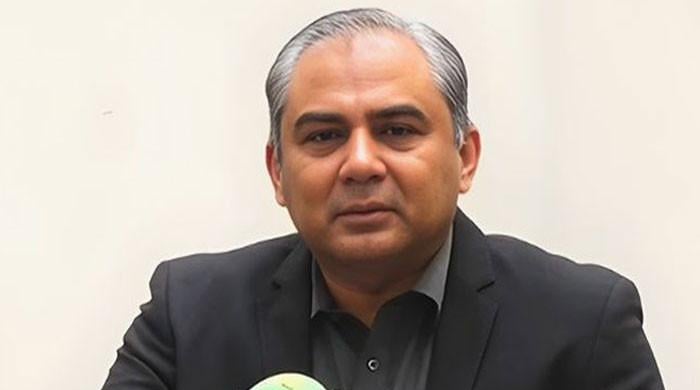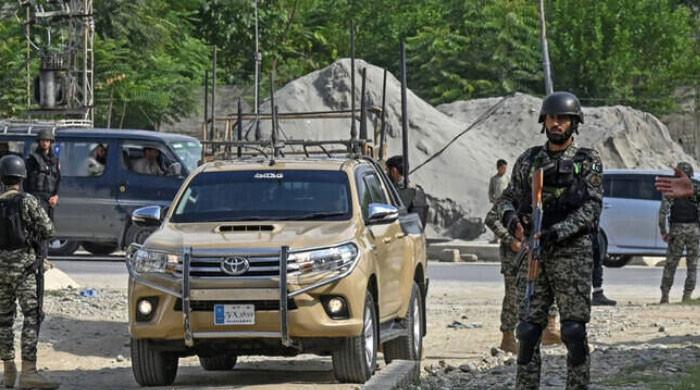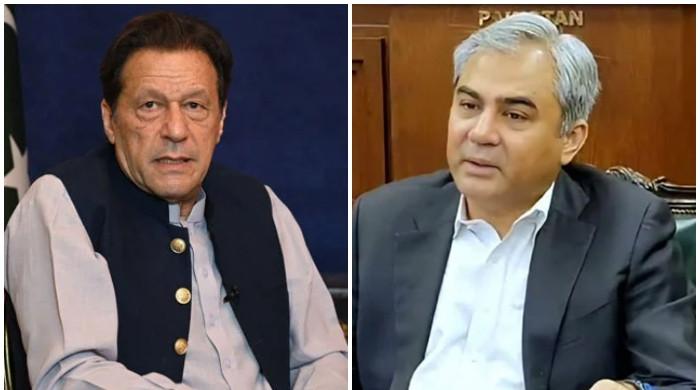Pakistan gripped by serious hunger: Global Hunger Index
Pakistan stands at 99 out of 121 countries on Global Hunger Index with a score of 26.1
July 26, 2023
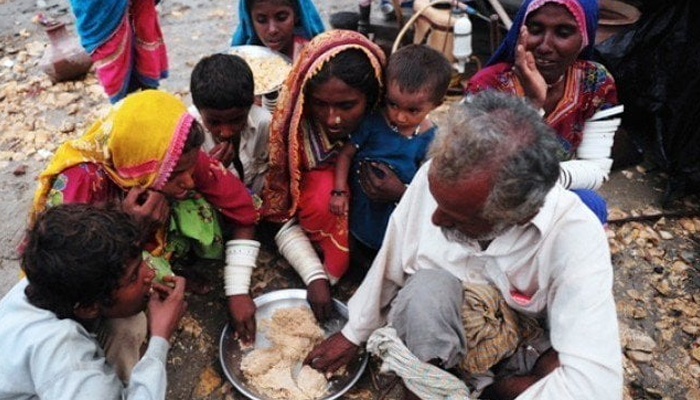
- Pakistan’s level of hunger classified "serious" with score of 26.1.
- Report assesses nutritional situation in 129 countries.
- Up to 828 million people forced to endure hunger in 2021.
ISLAMABAD: Pakistan faces an alarming challenge in its fight against hunger, data from the 2022 Global Hunger Index (GHI) by Concern Worldwide in collaboration with Welthungerhilfe showed.
The index, as reported by The News, emphasises the severity of hunger in the cash-strapped nation amidst global crises such as armed conflicts, climate change, and the coronavirus pandemic, which worsen the issue of hunger worldwide.
Covering 129 countries, the GHI index discloses that around 828 million people suffered from hunger in 2021, with the different crises compounding each other, which underscores the urgent need for targeted efforts to address the nutritional crisis and alleviate the plight of those enduring food insecurity in Pakistan and across the globe.
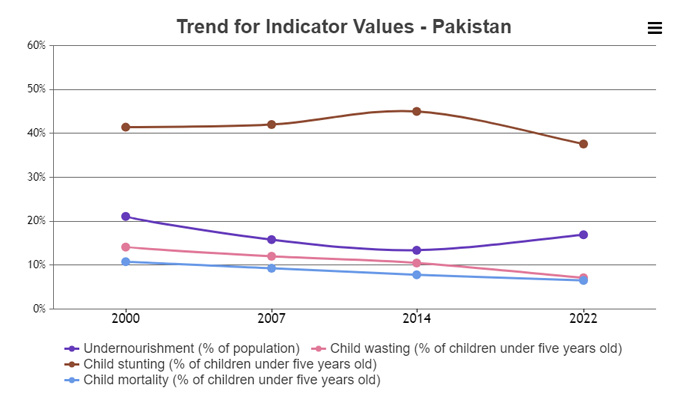
Formidable data shows that 46 countries, including Pakistan, are unlikely to achieve eliminating even a low level of hunger by 2030, let alone eliminate hunger entirely.
Once again, South Asia, including Pakistan, has emerged as the region with the highest hunger levels, with a staggering child stunting rate and child wasting rate.
In the 2022 Global Hunger Index, Pakistan’s position stands at 99th out of 121 countries, with sufficient data to calculate GHI scores. With a score of 26.1, Pakistan’s level of hunger is classified as “serious,” indicating an urgent need for measures to address food insecurity in the country.
To address these pressing issues, Welthungerhilfe, Concern Worldwide, and other partners, including ACTED, CESVI, and Helvetas, joined hands to launch the Global Hunger Index in Pakistan. The event gathered Food and Nutrition Security experts, government representatives, and civil society leaders to discuss the report’s findings and recommendations.
The event covered three main policy recommendations from the 2022 Global Hunger Index:
Inclusive Governance and Accountability: The importance of inclusive governance and accountability in transforming food systems was highlighted. Dr Nazeer Ahmed, Chief of Nutrition, provided an overview of the commitments and initiatives made by the government of Pakistan in this regard.
Citizen’s Participation, Action, and Oversight: Panel discussions emphasized the need to raise citizens’ awareness of their entitlements and pathways to food and nutrition security. Strong local leadership, including encouraging local champions, especially women, was emphasized to ensure the sustainability of food systems interventions.
Scaling up Resources for Humanitarian Needs: It was urged that stakeholders at all governance levels must harness local voices and capacities, involving communities, civil society, small producers, farmers, and indigenous groups, to shape the governance of access to nutritious food.
As Pakistan strives to address its serious hunger levels, the findings and recommendations from the GHI serve as a crucial roadmap for policymakers, activists, and stakeholders to collaborate and work towards a hunger-free nation.






